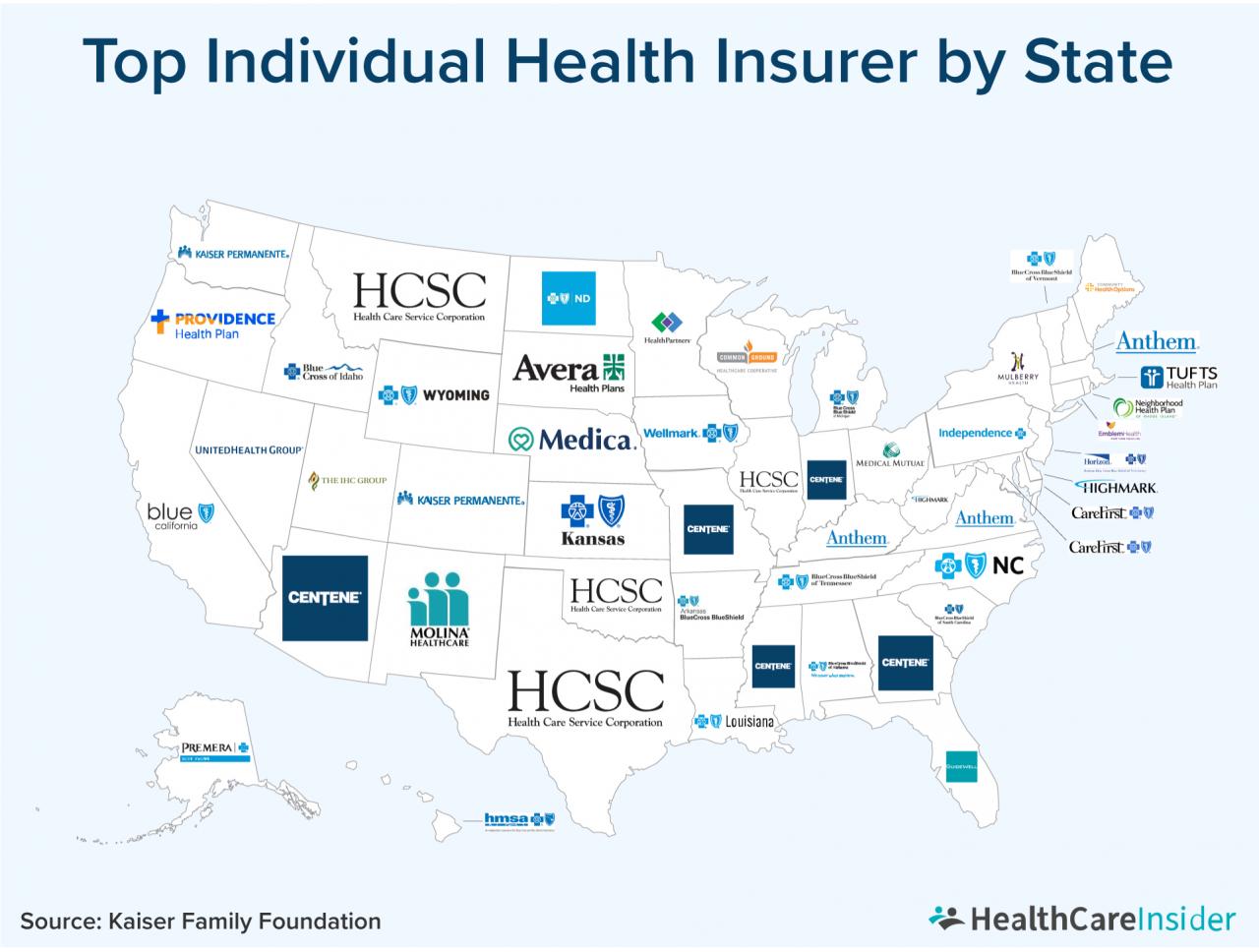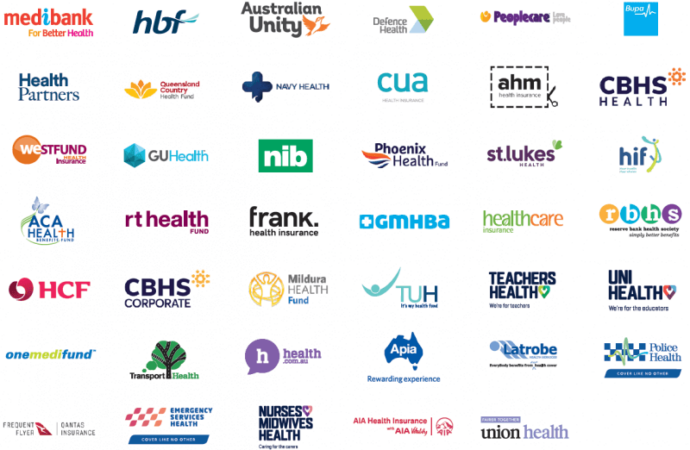
What is commercial health insurance? It’s a type of insurance that provides coverage for medical expenses, but unlike government-funded programs, it’s offered by private companies. This means it comes with its own set of advantages and disadvantages, including factors like premiums, coverage limits, and network access. Understanding how commercial health insurance works is crucial for navigating the complexities of healthcare.
Commercial health insurance plans can vary significantly, so it’s important to know the different types available. Some common examples include HMOs (Health Maintenance Organizations), PPOs (Preferred Provider Organizations), and POS (Point-of-Service) plans. Each has its own unique features and cost structure, so choosing the right one depends on individual needs and circumstances.
Choosing the Right Commercial Health Insurance Plan

Selecting the right commercial health insurance plan is crucial for safeguarding your financial well-being and ensuring access to necessary healthcare services. A well-chosen plan can provide peace of mind, knowing that you have coverage for unexpected medical expenses.
Factors to Consider When Choosing a Plan
It’s important to consider several factors when selecting a commercial health insurance plan. These factors can influence the type of coverage, cost, and overall suitability of the plan for your individual needs.
- Age: As you age, your healthcare needs may change. Younger individuals may require less extensive coverage, while older adults may benefit from plans with comprehensive benefits.
- Health Status: If you have pre-existing conditions, it’s essential to choose a plan that provides coverage for those conditions. Consider plans with higher coverage limits or specific provisions for pre-existing conditions.
- Budget: Your financial situation is a key factor. Determine how much you can afford to pay for premiums and out-of-pocket expenses. Compare different plans with varying premium structures and deductibles.
- Lifestyle: Your lifestyle and health habits can influence your insurance needs. For instance, individuals who engage in high-risk activities may require additional coverage for specific injuries or illnesses.
Comparing Different Plans and Coverage
Once you’ve considered the relevant factors, it’s time to compare different plans and their coverage. Here are some key aspects to focus on:
- Network: Ensure that the plan’s network includes your preferred healthcare providers, such as doctors, hospitals, and specialists. A wider network generally offers greater flexibility.
- Coverage: Evaluate the plan’s coverage for various medical services, including hospitalization, surgery, preventive care, prescription drugs, and mental health services. Compare the coverage limits and deductibles for each service.
- Premium Costs: Compare the monthly premiums for different plans. Consider factors like the coverage level and the network size, which can affect premium costs.
- Out-of-Pocket Expenses: Analyze the potential out-of-pocket expenses, such as deductibles, co-payments, and coinsurance. Higher deductibles may result in lower premiums, but you’ll need to pay more upfront for medical services.
Key Factors to Consider
| Factor | Description |
|---|---|
| Age | Consider your age and healthcare needs, as these can influence the type of coverage you require. |
| Health Status | If you have pre-existing conditions, choose a plan that provides adequate coverage. |
| Budget | Determine your budget for premiums and out-of-pocket expenses. |
| Lifestyle | Your lifestyle and health habits can affect your insurance needs. |
| Network | Ensure the plan’s network includes your preferred healthcare providers. |
| Coverage | Evaluate the plan’s coverage for various medical services. |
| Premium Costs | Compare the monthly premiums for different plans. |
| Out-of-Pocket Expenses | Analyze potential out-of-pocket expenses, such as deductibles, co-payments, and coinsurance. |
Understanding Your Policy: What Is Commercial Health Insurance
Your commercial health insurance policy is a crucial document that Artikels the terms and conditions of your coverage. It’s essential to understand its contents to ensure you receive the benefits you’re entitled to and avoid any unexpected surprises.
Reading and Interpreting Your Policy
Your policy document may seem overwhelming at first glance, but it’s structured to provide clear information about your coverage.
* Policy Summary: This section provides a concise overview of your plan’s key features, including coverage details, benefits, and limitations.
* Table of Contents: This helps you navigate through the policy document and find specific information quickly.
* Definitions: This section explains the meaning of various terms used throughout the policy.
* Coverage Details: This section Artikels the specific medical services and treatments covered by your plan. It may also include information about deductibles, copayments, and coinsurance.
* Exclusions and Limitations: This section details the services, treatments, or conditions that are not covered by your policy.
* Claims Procedures: This section explains how to file a claim with your insurance provider.
* Appeals Process: This section Artikels the process for appealing a claim denial or other decisions made by your insurance provider.
Common Policy Terms
Understanding common policy terms is crucial for making informed decisions about your healthcare.
* Deductible: The amount you must pay out-of-pocket before your insurance coverage begins.
* Copayment: A fixed amount you pay for each medical service, such as a doctor’s visit or prescription.
* Coinsurance: A percentage of the medical bill you pay after you’ve met your deductible.
* Out-of-Pocket Maximum: The maximum amount you’ll pay for healthcare costs in a given year.
* Premium: The monthly or annual payment you make for your health insurance coverage.
* Network: A group of healthcare providers that have contracted with your insurance company to provide services at a negotiated rate.
* Formulary: A list of prescription drugs covered by your health insurance plan.
* Pre-authorization: A process of obtaining approval from your insurance company before receiving certain medical services.
* Benefit Period: The time frame during which your insurance coverage is in effect.
* Waiting Period: The period of time you must wait before certain benefits become available.
Filing a Claim, What is commercial health insurance
Filing a claim is a straightforward process, but it’s important to follow the steps Artikeld by your insurance provider.
* Gather Necessary Information: Collect your insurance card, claim form, and any relevant medical documentation, such as receipts, bills, and medical records.
* Complete the Claim Form: Accurately fill out the claim form, providing all required information.
* Submit Your Claim: Submit your claim to your insurance provider through their preferred method, such as mail, fax, or online portal.
* Track Your Claim: Check the status of your claim regularly and contact your insurance provider if you have any questions.
Remember to keep a copy of all claim documents for your records.
Commercial Health Insurance in the Context of Healthcare

Commercial health insurance plays a crucial role in the American healthcare system, acting as a bridge between individuals seeking medical care and healthcare providers. It provides financial protection against the high costs of healthcare, allowing individuals to access necessary medical services without facing catastrophic financial burdens.
Impact on Healthcare Costs and Access to Care
Commercial health insurance significantly influences healthcare costs and access to care. Its impact can be seen in several ways:
- Negotiation of Provider Rates: Insurance companies negotiate lower rates with healthcare providers, such as hospitals and doctors, to keep premiums affordable for policyholders. This negotiation process can influence the overall cost of healthcare services.
- Utilization Management: Insurance companies implement utilization management practices to control healthcare costs by encouraging the use of cost-effective treatments and procedures. This may involve pre-authorization requirements for certain procedures or treatments, promoting generic medications over brand-name alternatives, or encouraging preventive care.
- Impact on Access to Care: Commercial health insurance plans often have provider networks, limiting patients to receiving care from specific healthcare providers within the network. While this can help manage costs, it can also restrict access to specialized care or providers outside the network.
“Commercial health insurance companies, through their contracts with providers and their utilization management practices, have a significant influence on the cost and accessibility of healthcare in the United States.”
Final Review

In conclusion, commercial health insurance plays a vital role in the healthcare system, offering individuals access to medical care while also shaping costs and access. Understanding the different types of plans, their benefits and drawbacks, and how to choose the right one is essential for making informed decisions about your health and finances. By carefully considering your needs and comparing plans, you can find the best commercial health insurance option for your specific situation.
Essential FAQs
How does commercial health insurance differ from government-funded programs?
Commercial health insurance is offered by private companies, while government-funded programs like Medicare and Medicaid are run by the government. This means commercial insurance has different eligibility requirements, premiums, and coverage levels compared to government programs.
What are the common benefits included in commercial health insurance plans?
Common benefits include coverage for hospital stays, doctor visits, prescription drugs, preventive care, and mental health services. The specific benefits vary depending on the plan and insurer.
What are the potential disadvantages of commercial health insurance?
Potential disadvantages include high premiums, limited coverage, pre-existing condition exclusions, and restrictions on network access.
What should I consider when choosing a commercial health insurance plan?
Consider your age, health status, budget, coverage needs, and the network of healthcare providers offered by the plan.





